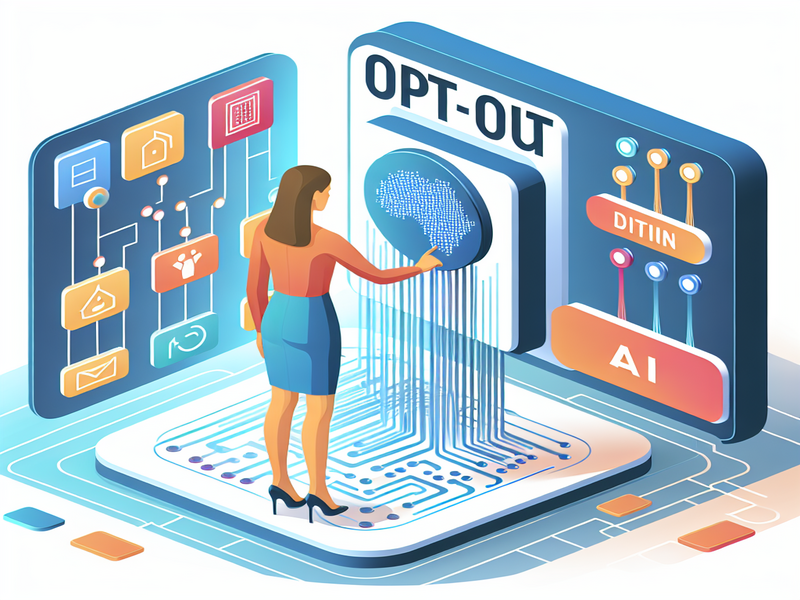- Updated: March 27, 2025
- 3 min read
The Ethical Landscape of AI Training: Navigating Data Privacy and Opt-Out Processes
AI Training and Data Privacy: Navigating the Ethical Landscape
In the rapidly evolving world of artificial intelligence (AI), data privacy has emerged as a critical concern. As AI systems become more sophisticated, the need for vast amounts of data to train these models has increased. This demand raises significant questions about data privacy, the effectiveness of opt-out processes, and the ethical implications of using personal data in AI training.
The Effectiveness of Opt-Out Processes
Opt-out processes are designed to give individuals control over their personal data. However, the effectiveness of these processes is often questionable. Many users are unaware of their rights or the methods available to opt out, leading to widespread data usage without explicit consent. This lack of awareness and transparency can undermine trust in AI systems.
Moreover, even when users successfully opt out, their data may have already been used in training AI models. This raises the issue of whether opting out after the fact can truly mitigate privacy concerns. The ChatGPT and Telegram integration exemplifies how AI systems can be designed to respect user privacy while still delivering powerful functionality.
Impact of Individual Data on AI Models
Individual data plays a crucial role in shaping AI models. Each data point can influence the behavior and accuracy of a model, making personal data a valuable asset. However, this reliance on personal data also means that AI systems can inadvertently perpetuate biases present in the data.
For instance, the AI-powered chatbot solutions on UBOS demonstrate how AI can be leveraged to enhance user interactions while maintaining data integrity. These solutions highlight the importance of using diverse and representative data sets to train AI models, thus minimizing bias and improving fairness.
Ethical Considerations in Generative AI
Generative AI, which creates new content based on existing data, presents unique ethical challenges. The potential for misuse, such as generating deepfakes or biased content, underscores the need for ethical guidelines in AI development. Developers must be vigilant in ensuring that AI systems are used responsibly and ethically.
The Revolutionizing AI projects with UBOS initiative provides a framework for developing ethical AI applications. By prioritizing transparency and accountability, this initiative aims to foster trust and confidence in AI technologies.
The Future of Data Usage in AI Training
As AI continues to evolve, the future of data usage in AI training will likely be shaped by advancements in privacy-preserving technologies. Techniques such as federated learning and differential privacy offer promising solutions for protecting individual data while still enabling effective AI training.
Furthermore, the Blueprint for an AI-powered future explores how organizations can transition to AI-first enterprises while respecting data privacy. This blueprint emphasizes the importance of aligning AI strategies with ethical considerations to ensure sustainable growth and innovation.
Conclusion and Call to Action
In conclusion, data privacy is a pivotal issue in the realm of AI training. As we navigate the complexities of AI development, it is crucial to prioritize ethical considerations and empower individuals with control over their personal data. By fostering transparency and accountability, we can build a future where AI technologies are both innovative and respectful of privacy.
For those interested in exploring AI solutions that prioritize privacy and ethics, the Enterprise AI platform by UBOS offers a comprehensive suite of tools designed with these principles in mind. Together, we can harness the power of AI while safeguarding the privacy and rights of individuals.

